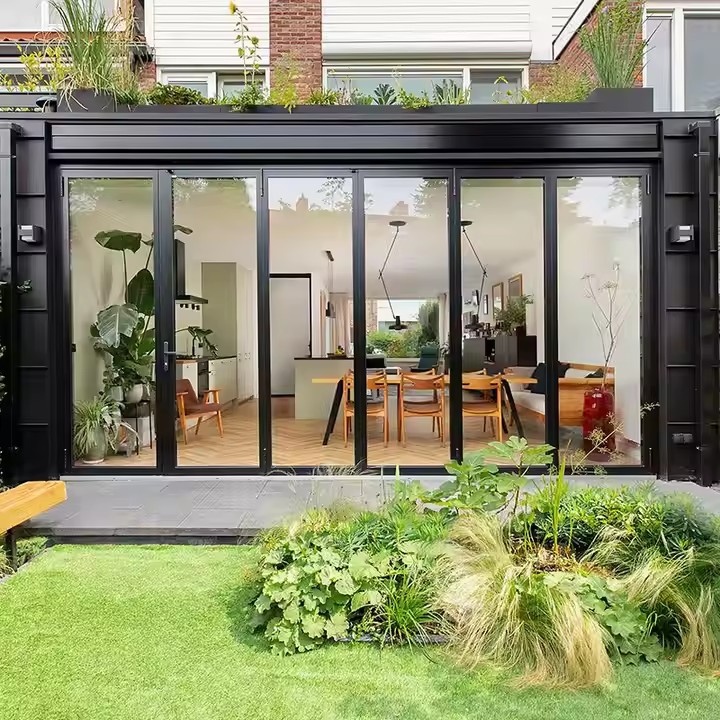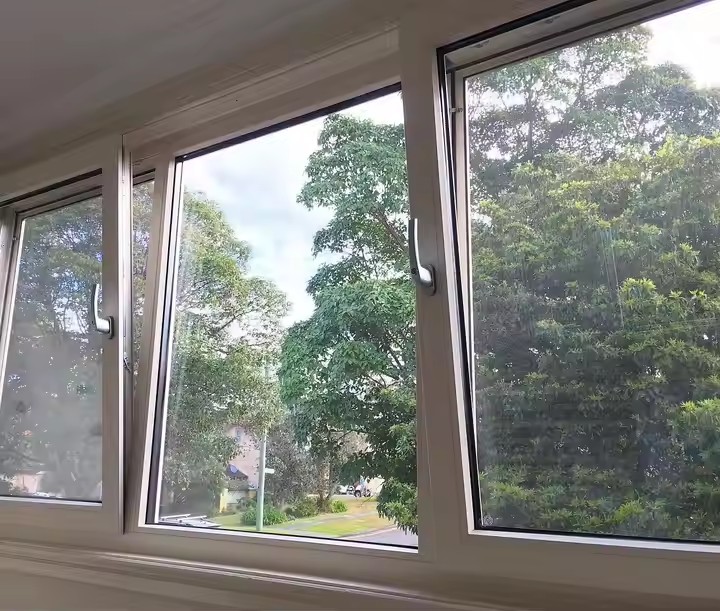- Focus on Material Quality
– Frame Material:
Give priority to aluminum-magnesium alloy frames, which offer high strength, corrosion resistance, and light weight—qualities well-suited to Australia’s climate conditions. Pay attention to the profile thickness; high-quality sliding doors generally have a thickness of over 1 mm, ensuring durability and resistance to deformation over time. Avoid doors made from recycled aluminum, as they tend to be less sturdy and have a shorter lifespan.
– Glass Material:
If choosing glass sliding doors, tempered glass is recommended due to its high strength and safety—when broken, it shatters into blunt particles that are less likely to cause injury. For spaces requiring sound or heat insulation, opt for insulated double-glazed glass, whose air layer effectively blocks heat transfer and sound transmission.

- Pay Attention to Hardware Quality
– Roller System:
Rollers are a key component that determine the smoothness and longevity of door movement. Fiberglass rollers are an excellent choice, offering toughness, wear resistance, and smooth, quiet operation. Choose rollers equipped with bearings, ideally imported light-steel ball bearings, to ensure stable, noiseless sliding.
– Track Design:
The height of the bottom track should ideally not exceed 5 mm. This ensures comfort when walking, reduces tripping hazards for children and the elderly, and makes cleaning easier. The track surface should be smooth and flat, fitting tightly with the rollers to prevent shaking or jamming during operation. You can also choose shock-absorbing tracks to minimize noise during sliding.
– Locks and Other Accessories:
Select locks based on your specific security needs—options include multi-point locks and bolt locks. Pay attention to the quality of other hardware such as hinges and handles, as these also affect the overall performance and lifespan of the sliding door.
- Evaluate Performance Indicators
– Sealing Performance:
Given Australia’s diverse climate, good sealing performance is crucial for maintaining indoor comfort. Check whether the door and frame, as well as between panels, are fitted with quality sealing strips. These should have strong elasticity and durability to effectively block wind, rain, dust, and insects.
– Sound Insulation:
For homes near busy streets or transport hubs, soundproofing is essential. In addition to using double-glazed glass, consider the door’s overall structural design—look for models with proper sealing strips or thermal-break aluminum profiles that also enhance noise reduction.

– Thermal Insulation:
In regions with intense sunlight, thermal insulation helps reduce indoor heat buildup and lower air-conditioning usage, achieving energy efficiency. Choose thermal-break aluminum frames with insulating strips or low-emissivity coated glass to enhance heat resistance.
- Consider Design and Style
– Space Adaptation:
Select door styles based on the size and function of the installation space. For large areas such as balconies, folding sliding doors allow wide openings and seamless indoor-outdoor integration. For smaller spaces like kitchens or bathrooms, two- or three-panel sliding doors are more practical.
– Style Coordination:
Ensure the door style matches the overall interior design. For modern minimalist interiors, choose sleek, clean-lined doors with simple forms. For European-style interiors, decorative frames or carved details can enhance aesthetic appeal.
- Choose Reliable Brands and Suppliers
– Brand Reputation:
Reputable brands usually offer better quality, craftsmanship, and after-sales support. Research brands through online reviews, recommendations, and customer feedback, and choose those with strong market recognition.
– Supplier Credentials:
Purchase from suppliers with valid licenses and good business reputations. Check for business registration certificates and official authorization documents to ensure the products are genuine and compliant. Review their after-sales policies regarding installation, maintenance, and warranty services before purchase.
- Check Product Certifications and Test Reports
In Australia, sliding doors must comply with national standards such as AS 2047. When purchasing, ask suppliers to provide product certification and testing reports to ensure all performance indicators meet regulatory requirements—guaranteeing both safety and reliability in use.

